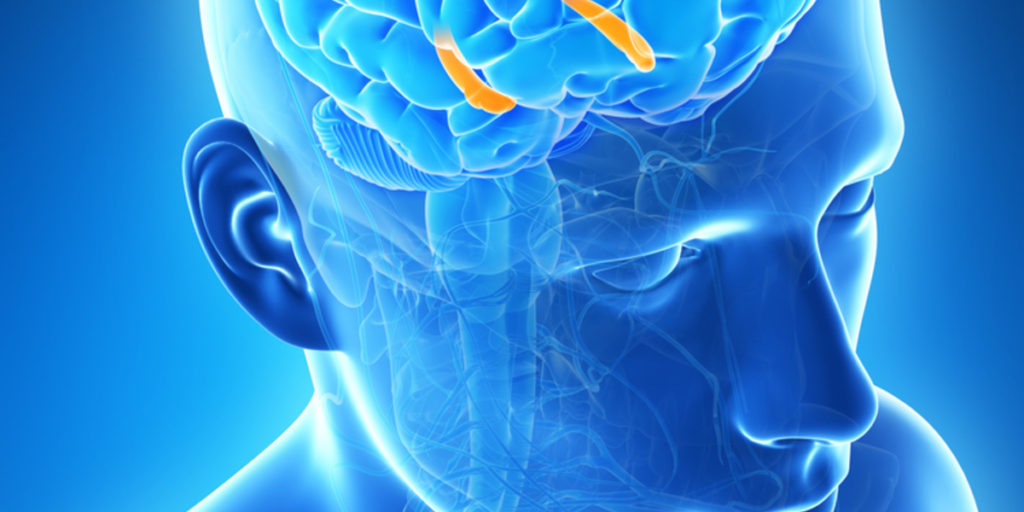Cognitive deficits, or difficulties thinking clearly, often appear well before the traditional clinical diagnosis of Huntington’s disease (HD). While many contend that the earliest cognitive deficits are caused by damage to the striatum – a structure deep in the brain known to be severely affected in HD – recent evidence suggests that this claim may paint an incomplete picture of the widespread changes occurring in the brains of HD patients during the very early stages of the disease.
Rethinking the Symptoms of Huntington’s Disease
Huntington’s disease (HD) is most often recognized by the appearance of Huntington’s chorea, a movement disorder characterized by involuntary ‘twitchy’ or ‘fidgety’ motions. However, those familiar with the disease know that motor symptoms are only part of a much bigger picture; HD patients also have a difficult time with emotional states and disturbances in mood and affect. Over time, they also have more and more difficulty thinking clearly.
nThese ‘cognitive deficits’ can precede the appearance of motor symptoms by as many as 20 years, although they most often emerge in the 10 years leading up to clinical diagnosis of the disease. HD patients and their families describe cognitive deficits as being the most challenging aspect of the disease to overcome, and consider them to be more burdensome than motor symptoms overall. Given these circumstances, it’s important that the cognitive deficits in HD be given due attention by researchers if we are to develop new treatments to improve these symptoms.
Cognition and the Brain Structures Controlling It
The term ‘cognition’ can be somewhat overwhelming to consider, if only because of the sheer number of mental processes it describes. Put simply, cognition is a person’s ability to think. In HD, ‘cognitive deficits’ can describe difficulties with anything from learning and retaining new information, to managing the activities of day to day life, to communicating, making decisions, or remembering things.
Largely, researchers who study cognition in HD patients contend that the earliest deficits are due to damage in the striatum – a structure located deep within the brain. The striatum is one of the earliest and most severely affected brain structures in HD, and many of the problems that emerge prior to the appearance of motor symptoms (known as the pre-manifest stage of HD) are known to depend on its function. These can include difficulties reasoning, planning, and maintaining attention, and deficits in ‘procedural learning’, the process that lets us complete routine tasks without giving them much thought, like tying our shoes, brushing our teeth, or driving a car.
Over time, as HD progresses and motor symptoms begin to appear (known as the manifest stage of HD), more widespread deficits in learning and memory recall become noticeable. Many researchers believe that these problems are caused by continued damage in the striatum as well as the gradual spreading of neurodegeneration (albeit to a lesser extent) to other structures in the brain including the hippocampus, a region known to be important for learning, memory, and spatial navigation.
This is a reasonable assumption, since damage to the hippocampus in HD patients is generally very mild compared to the striatum. Until now, hippocampus-related cognitive processes like spatial memory haven’t appeared to be problematic in HD patients until later stages of disease. But clues from animal models tell us that hippocampal damage may happen earlier than we think. Hippocampal deficits in mice are measured by a test called the Morris water maze. Of course, mice are one thing, but this relationship is more difficult to study in HD patients.
To ask if and when damage to the hippocampus causes symptoms HD patients, a group of researchers led by Dr. Roger Barker at Cambridge University took inspiration from the Morris water maze. In their study, Barker and colleagues divided their participants into three groups, pre-symptomatic HD patients, early symptomatic HD patients, and people without HD, and put their spatial memory to the test.
Multiple Memory Systems and the Morris Water Maze
Imagine that you’ve moved to a brand new city that that contains very unique and visually distinctive landmarks that lie in each cardinal direction: an ocean to the West, a tall skyscraper to the North, a mountain in the East, and a forest in the South.
nNow imagine you’ve rented a brand new apartment located in the South end of town, and are about to start a new job that is located in the Northeast part of the city. The first few times you leave for work in this new, unfamiliar place, you’ll likely use the landmarks to guide you along the way. You may discover that to get there, you need to travel toward the skyscraper for three blocks, then turn right and travel toward the mountains for two more blocks.
As time goes by and you travel to work each day, the route you travel will become part of your ‘muscle memory’ and you need to rely less and less on the visual landmarks to guide your way. In fact, even if the landmarks could no longer be seen, you’d still be able to successfully travel to work – all you need to do is travel a few blocks North and a couple blocks East relative to your apartment to arrive at the correct location. As we noted earlier, this is called procedural memory, which we know is affected very early on in the progression of HD due to damage in the striatum.
Now imagine that a bug infestation has forced you out of your apartment, making it necessary to stay with friends for a few days while things are sorted out. You have three friends who have agreed to let you stay for one night, and each friend lives on an opposite side of town. When you leave for work from your friends’ apartments, the ‘procedural’ strategy you’ve come to rely on leaving your own apartment will no longer work because you’re starting from an unfamiliar location – heading the usual three blocks North and two blocks East take you away from work rather than toward it. Instead, you’re forced to rely on the landmarks once again, but you know that as long as you head towards a location somewhere between the skyscraper and the mountains, you’ll arrive in the correct spot eventually.
This is called spatial memory, and we know it depends on the hippocampus because people with damage in this brain structure have a hard time with this type of task, while they perform relatively well on measures of procedural learning. It’s also the basis for the Morris water maze experiment we often use to measure hippocampal deficits in rodents. In the Morris water maze, animals are trained over a series of trials to find an escape platform located at a consistent spot in a pool of water. Rats or mice are placed into the maze at random locations and have to use visual landmarks around the room to remember where the escape platform is found. When it came to HD patients, Dr. Barker and colleagues created a digital version of the maze where participants were trained to ‘swim’ to the hidden platform using a computer monitor and a video game joystick.
As you might expect, those who found it hardest to learn the location of the escape platform were the early-manifest HD patients. They also had the most trouble with the ‘probe trial’ which cleverly measures recall ability by taking out the escape platform altogether and measuring the amount of time participants spend where the platform should be. This means that even during the earliest stages of manifest HD, when motor symptoms are only just beginning to emerge, it’s possible to measure tell-tale signs of damage to the hippocampus.
Although the virtual water maze was probably the most fun of tasks, Barker and his team double checked their results with a number of other tests to make sure the hippocampus-related differences they saw were not due to other things like decreased motivation or motor ability.
Getting at the Bigger Picture of HD Symptoms
The findings by Dr. Barker and his team can be added to a growing body of evidence that HD symptoms are caused by changes throughout the brain and body, not simply in the striatum. While it has been noted that the hippocampus takes on less damage than the striatum, hippocampal damage may contribute to a greater extent, and appear earlier in HD’s progression, than originally thought. This means that researchers may have more ground to cover than just the striatum if they want to find treatments that improve the cognitive symptoms that so many HD patients struggle with. And now they know where to look.







